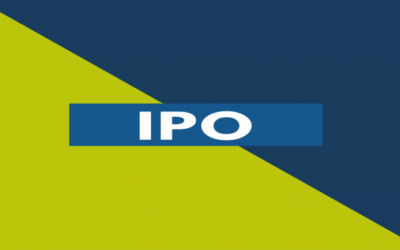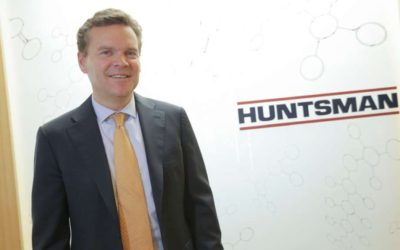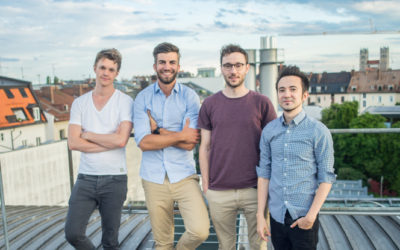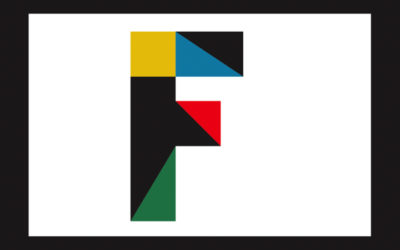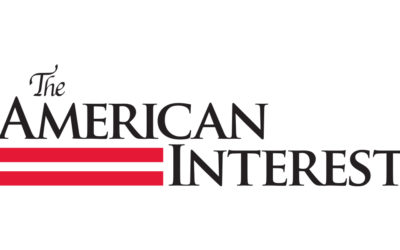Mahindra Logistics files IPO papers with Sebi
Mahindra Logistics files IPO papers with Sebi.
Mahindra Group’s logistics arm has filed draft papers with markets regulator Sebi to raise an estimated Rs 700 crore through an initial public offering.
The public issue of Mahindra Logistics comprises sale of 1,93,32,346 equity shares.
This includes sale of 96,66,173 shares, amounting to 13.74 per cent stake, by the parent firm Mahindra and Mahindra Ltd, according to the draft papers.
Besides, Normandy Holdings would sell 92,71,180 shares, while Kedara Capital would offload 3,94,993 scrips.
According to sources, the company is expected to garner Rs 700 crore through the initial public offer (IPO). “The objects of the offer are to achieve the benefits of listing the equity shares on the stock exchanges.
Further, our company expects that listing of the equity shares will enhance our visibility and brand image and provide liquidity to our shareholders,” Mahindra Logistics said.
The company provides logistics solutions, warehousing, freight forwarding and supply chain services.
Kotak Mahindra Capital Company and Axis Capital will manage the company’s IPO.
Auris Surgical Robotics, founded by superstar Fred Moll, has quietly closed on a ton of money
Auris Surgical Robotics, a 10-year-old, San Carlos, Ca.-based surgical robotics company that was founded by serial entrepreneur Frederic Moll, has quietly raised $280 million in Series D funding led by Coatue Management.
Its other backers include Mithril Capital Management (cofounded by Peter Thiel and Ajay Royan), Lux Capital, NaviMed Capital, and Highland Capital Partners.
Auris is an interesting company, largely because of Moll, who previously founded three other companies, including 22-year-old, publicly traded Intuitive Surgical, which also makes robotic surgical systems and whose market cap is right now hovering around $35 billion, and Hansen Medical, a company that developed tools to manipulate catheters.
The company, which never gained the kind of traction that Intuitive has enjoyed, was acquired last summer by Auris in a deal valued at roughly $80 million.
It’s a huge opportunity (alas).
Despite a wealth of information about the dangers of smoking, the World Health Organization estimates that one billion people in the world smoke currently, which leads to 6 million deaths per year.
As Auris notes, that’s more victims than patients who die every year from prostate, breast, and colon cancer combined.
According to Auris, one reason lung cancer remains so dangerous is that both diagnosis often comes late, when the cancer has spread.
It’s making progress toward that end, seemingly.
A close read by the journal IEEE Spectrum of other patents Auris has filed suggest it’s working on flexible robots that can use the body’s natural openings, including the mouth, to address conditions of the throat, lungs and gastrointestinal system.
IPO-chasing upstarts face Snap and Blue Apron cautionary tales
IPO-chasing upstarts face Snap and Blue Apron cautionary tales.
The lackluster stock market debuts of social media company Snap and meal-kit delivery service Blue Apron have splashed a dose of cold water on an initial public offering season that appeared to be heating up.
The two companies share several similarities.
Blue Apron initially priced its shares in June at around $10 a share; by Wednesday, the stock had closed at $6.25, off more than 30 percent from its original price (which itself was lower than the company had hoped).
Snap and Blue Apron “are kind of ‘me too’ companies in a way,” said Kathleen Smith, manager of IPO exchange traded funds at Renaissance Capital.
“There’s a lot of Blue Apron kinds of companies that have been funded.
This year, 86 companies have gone public, a 65 percent increase from this time a year ago.
But making it easier for good companies to go public can be a benefit for investors and the companies seeking to raise money.
To be sure, Snap and Blue Apron have been more the exception than the rule this year.
“We’re going to see a lot more IPO activity through 2017 and the first half of 2018,” he said.
Op-ed: Silicon Valley startup and investment strategies to avoid
Op-ed: Silicon Valley startup and investment strategies to avoid.
And they want to do so by being the next Silicon Valley.
The patterns of behaviour you’re following and looking up to don’t work outside of the Bay Area.
I would be offering high valuations and deploying a huge amount of money for a few early stage companies, I would exhaust my available funds very quickly.
The community of investors around me couldn’t sustain the investments.
Funds here in Canada, internationally, and the rest of the U.S. that are trying to foster technological success in their local market and have to look more carefully and be more discriminatory about what they choose to copy and what they should absolutely not copy.
Investment strategies and company models for anywhere else in the world, however, should not be taken from the Silicon Valley.
A Silicon Valley fund can invest in an individual company in an emerging market.
Capitalize on differences Pointing to Silicon Valley as the epicentre of technological innovation that you want to copy and follow is a mistake that happens too often.
Companies and investors have to be aware that there are simply some things that work in the Silicon Valley that simply will not work anywhere else.
Google reportedly offered $30 billion to acquire Snapchat
Google reportedly offered $30 billion to acquire Snapchat.
Nerdy Google has failed at social time and time again, so it considered buying teen sensation Snapchat.
The search giant held informal talks with Snap and floated an offer of $30 billion in 2016 before Snap’s last funding round, and just before its IPO this year, according to Business Insider’s Alex Heath.
That offer was apparently an open secret inside Snap, and was on the table after the IPO, too.
News of Google’s interest helped Snap’s share price climb around 2.3 percent today.
The organizations have long been buddy-buddy.
But in August, Instagram’s soon to be wildly successful Stories clone launched, which has diverted growth, mind share and advertisers from Snap ever since.
Joining forces could be beneficial to both companies.
Google would get a top social property to make up for its Google+, Buzz and Wave flops.
Snap would gain a deep-pocketed parent that could provide extra capital to make acquisitions and build out its R&D-heavy augmented reality technology.
Wharton Prof Says VCs Keep Women-Led Startups From Raising More Money
But new research from Wharton management and entrepreneurship professor Laura Huang, published in the paper “We Ask Men to Win & Women Not to Lose: Closing the Gender Gap in Startup Funding” suggests that the gap exists because of something venture capitalists do.
That was the initial conversation we had, then we thought that it seems the women entrepreneurs are getting asked different type of questions.
Huang: The finding is that men and women are getting asked different types of questions.
Women get asked questions about risk and prevention, and men get asked about opportunity.
We’re now realizing that we do have more female VCs now, but the funding gap is only widening.
The first is that we just don’t have a lot of VCs that are women.
The second thing is whether you’re a VC who’s male or female, it’s important to recognize that there are implicit biases driving questions to entrepreneurs.
Huang: Yes, in our research we found that when you’re asked a prevention-focused question, you’re much more likely to answer in a prevention-focused way.
For entrepreneurs who are asked prevention-based questions, they should be aware of this.
BizPhilly: Why does this burden to redirect the conversation fall on the entrepreneur as opposed to the VC?
Venator Materials goes public with $454M IPO
Venator Materials goes public with $454M IPO.
New pigments and paints manufacturer Venator Materials goes public Thursday after spinning off from The Woodlands’ Huntsman Corp. Venator’s initial public offering raised $454 million, which was at the bottom of the $20 to $22 per share asking price of 22.7 million shares.
Venator will trade on the New York Stock Exchange under the “VNTR” stock ticker beginning Thursday morning.
Huntsman sold just 21 percent of Venator’s share, opting to hold onto nearly 80 percent of the company as a subsidiary.
Venator is a Latin word for “hunter” — a play off of the Huntsman family name.
Huntsman said the new Venator would focus largely on the titanium dioxide chemical, called TiO2, which is used as a pigment for everything from food coloring and paints to coatings and sunscreen.
The business is more cyclical than Huntsman’s other divisions and prone to more financial peaks and valleys.
The IPO spinoff occurred before Huntsman’s pending merger with Swiss-based Clariant to create the $14 billion company called HuntsmanClariant.
The formal headquarters for HuntsmanClariant would be in Clariant’s hometown of Pratteln, Switzerland, in part for tax purposes, while The Woodlands would become the operational headquarters for the combined company.
Huntsman plans to use proceeds from the IPO to help pay off debt.
Personio, a HR startup in Munich, closes $12M Series A
European VC Northzone led the round, with participation from existing investors, such as Rocket Internet’s Global Founders Capital (GFC) and Picus Capital.
Founded in 2015 and “bootstrapped” to nearly 100 customers in the first one and a half years, before taking a seed round from Global Founders Capital and a few business angels last summer, Personio now claims over 400 customers and counts over 50 employees.
SMEs use the platform to manage all of their HR and recruitment processes, benefiting from what the startup describes as a single view of employee management.
“More specifically we are building an end-to-end HR Operating System that covers all processes along the employee life-cycle (recruit, manage and develop)” The result is described by Renner as a “central hub for all HR data,” and is seeing the company take a platform approach by integrating with vertical players in the HR space to provide customers with “the ease of only having to track information about their people at one place and then pushing them via our API”.
Concrete examples of areas covered by Personio include: a full applicant tracking system, with support for multi-posting to over 100 job boards (e.g. Stepstone, Indeed, Linkedin, etc); a digital employee file; document and contract management; on/off-boarding; attendance tracking; absence management; salary management & payroll; and performance management and feedback.
Renner says that typical Personio customers are European companies between 10 and 1,000 employees.
“However, our core segment is between 100-500 employees.
Typical examples would be HelloFresh, Statista or Scalable Capital,” he adds.
Competitors are cited as Excel and paper-based files.
“A lot of our customers have therefore replaced for example BambooHR and Jobvite to have everything in one tool.
Huntsman’s Venator Raises $454 Million in U.S. Public Offering
Huntsman’s Venator Raises $454 Million in U.S. Public Offering.
Proceeds from the sale will go to the parent company, which will hold about 79 percent of the stock after the IPO, Venator said in a regulatory filing last month.
At the IPO price, Venator has a market value of more than $2.1 billion, based on the 106.3 million shares to be outstanding after the offering.
Huntsman, based in The Woodlands, Texas, agreed in May to be acquired by Swiss chemical producer Clariant AG for $6.4 billion.
The paint-pigment business has been volatile historically, Huntsman Chief Executive Officer Peter Huntsman said in 2015.
The Huntsman-Clariant deal has been assailed by U.S. investors Corvex Management and 40 North Management, known collectively as White Tale Holdings, which have taken a stake in Clariant.
They’re working together to push the Swiss chemical company to explore alternatives to the deal.
Former owner DuPont Co. in 2015 spun off Chemours, whose shares have climbed more than 128 percent since then.
Citigroup Inc., Goldman Sachs Group Inc., Bank of America Corp. and JPMorgan Chase & Co. are leading the deal.
Chemours on Wednesday posted second-quarter profit that beat analysts’ estimates as adjusted earnings in the pigment segment surged 74 percent on higher prices.
Newater Technology, Inc. Announces Closing of Initial Public Offering
Newater Technology, Inc.
Announces Closing of Initial Public Offering.
YANTAI, China, Aug. 2, 2017 / PRNewswire/ — Newater Technology, Inc. (“Newater” or the “Company”) (Nasdaq: NEWA), a developer and manufacturer of membrane filtration products and related hardware and engineered systems that are used in the treatment, recycling and discharge of wastewater, today announced the closing of its initial public offering (the “IPO”) of 1,400,000 of its common shares at a price to the public of $5.00 per share for a total offering size of $7,000,000 before underwriting discounts and commissions and offering expenses.
The offering closed on August 2, 2017 and shares began trading on July 28, 2017 on NASDAQ Capital Market under the symbol “NEWA”.
A registration statement relating to these securities was filed with the Securities and Exchange Commission (the “SEC”) and was declared effective on July 27, 2017.
This press release shall not constitute an offer to sell or the solicitation of an offer to buy, nor shall there be any sale of these shares in any state or jurisdiction in which such offer, solicitation or sale would be unlawful prior to their registration or qualification under the securities laws of any state or jurisdiction.
The offering has been made only by means of a prospectus.
A copy of the final prospectus related to the offering may be obtained, when available, from ViewTrade Securities, via email: IB@Viewtrade.com or standard mail at ViewTrade Securities, 7280 W Palmetto Park Rd, #310, Boca Raton, FL 33433, Attn: Prospectus Department.
In addition, a copy of the final prospectus relating to the offering may be obtained via the SEC’s website at www.sec.gov.
For more information, please contact: View original content:http://www.prnewswire.com/news-releases/newater-technology-inc-announces-closing-of-initial-public-offering-300497556.html
WanderJaunt wants to make a brand for itself on Airbnb with $2M in seed funding
WanderJaunt wants to make a brand for itself on Airbnb with $2M in seed funding.
I’ll admit, when WanderJaunt co-founder Michael Chen told me he wanted to build a hotel chain, like the Westin, from the ground up on Airbnb, I wasn’t sure what to think.
There are already dozens of property management startups for short-term rentals (Vacayo, Guesty etc.
And besides, isn’t the commercial dominance and economic power of hotel groups half the reason people use Airbnb in the first place?
The emergence of the short-term rental market has drastically reduced the financial burden of traveling, while opening up new revenue streams for homeowners.
The startup struck deals with large home goods providers, like Leesa Sleep, to deliver a common experience to travelers at all WanderJaunt properties.
And unlike other property management services that furnish properties, WanderJaunt is ready and willing to advertise the experience as a sort of external short-term rental verification badge.
But beyond property management, the long term play is buying properties.
If the company can collect a wholesome dataset to build reliable models for pricing short-term rentals, WanderJaunt can effectively re-price home values to take this additional potential value into account.
Today’s round should give the team some breathing room to get more aggressive — though Chen tells me he aims to keep everything profitable on a unit basis.
13 Startups Racing to be the Uber of Trucking
13 Startups Racing to be the Uber of Trucking.
It represents two significant trends right now in the digitization of the trucking industry.
The three-year-old company has raised $165 million, including a $110 million Series D last December.
Quite a few startups are competing for the title of Uber of Trucking in the US of A.
The company has now raised $80.5 million over three rounds from 32 investors since it was founded in 2015.
New York-based Transfix also became one of the most well-funded of the lot in July with a $42 million Series C. Founded in 2013, the startup has raised $78.5 million.
Its app is used by about a third of the nation’s 1.6 million long-haul truckers, according to TechCrunch.
Not to be out-Ubered, Uber has started its own on-demand trucking platform, Uber Freight.
Founded only last year, Madrid-based OnTruck has hauled in about $12 million, with a $10 million Series A in May.
But what will happen when the true digitization of trucking—autonomous 18-wheelers—finally takes to the road?
Obama Alums Pour $1.5 Million Into Progressive Tech Startups
Unlike the campaign tchotchke, however, those data analytics and targeting tools could actually be useful to future national and state campaigns.
On Wednesday, Higher Ground is disclosing investments totaling nearly $1.5 million in 10 startups and enrolling them in a five-month accelerator program, during which they’ll work with mentors from the political-tech space to build their businesses.
So people have had a hard time getting off the ground,” says Betsy Hoover, a co-founder of Higher Ground, who worked for both Obama presidential campaigns in online and field organizing.
Higher Ground has raised $2.5 million from investors spanning politics and the tech industry.
Clinton lost Michigan, but Tuesday Strategies CEO Michael Luciani said the company’s tactics helped the campaign beat its outreach targets in the state.
Daniel Kreiss, a professor at the University of North Carolina and author of the book Prototype Politics, says Republicans realized after Obama’s victory over Mitt Romney that they were at a technological disadvantage.
Cambridge was unusual because it was backed by billionaire hedge fund manager Robert Mercer, giving it the resources to sustain itself between presidential campaigns.
With Higher Ground, Hoover and her co-founders hope to do the same on the left.
The Arena launched a PAC to fund promising progressive startups and individuals.
To Hoover, that’s a promising sign.
Coal mining company mentions Trump 13 times in IPO filing
Coal mining company mentions Trump 13 times in IPO filing.
Company crediting Trump for its strong prospects Now a revamped version of the coal mining company is planning to go public on the New York Stock Exchange.
Contura Energy, which acquired Alpha’s core assets in bankruptcy, said it plans to raise as much as $162 million in an initial public offering as soon as next week.
Most of the mentions highlight Trump’s deregulation efforts. “The coal industry is expected to benefit from a reduced regulatory burden via recent and ongoing legislative and administrative action,” Contura wrote in the prospectus.
Contura is poised to become the third American coal mining firm to go public this year, joining Ramaco Resources and Warrior Met Coal, which formed from the ashes of bankrupt Walter Energy.
Natural gas isn’t as much of a problem for this year’s coal IPOs because they make most of their money from metallurgical coal, not thermal coal.
The companies that have emerged from bankruptcy are saddled with less debt and more sharply focused on the most profitable coal plays.
The entire industry was overbuilt,” said Cosgrove.
Wall Street is hoping Contura has more success as a public company than Ramaco Resources, which has struggled badly since going public in February.
Cochin Shipyard IPO subscribed 92%; SIS issue covered nearly twice
Cochin Shipyard IPO subscribed 92%; SIS issue covered nearly twice.
The initial public offering of state-run Cochin Shipyard Ltd was almost fully covered while that of CX Partners-backed Security and Intelligence Services (India) Ltd has received bids for almost two times the shares on offer.
Cochin Shipyard’s offering was covered 92%, having received bids for 31.31 million shares of the total 33.98 million on offer, at the end of the first day of the issue on Tuesday, stock-exchange data showed.
Cochin Shipyard is seeking a valuation of as much as Rs 5,872 crore ($912 million) through the IPO, which does not have an anchor book and will close on Thursday.
The company last week set a price band of Rs 424-432 per share for the IPO.
Cochin Shipyard will raise roughly Rs 980 crore via a fresh issue of 22.65 million shares while the government, acting as the sole selling shareholder, will mobilise the remaining by selling 11.32 million shares.
In the first three months of this fiscal year, the government has mobilised Rs 6,700 crore by selling minority stakes in half-a-dozen companies.
The security services provider’s IPO of 5.31 million shares, excluding the anchor allotment, received bids for 10.27 million shares at the end of the second day of the issue, stock-exchange data showed.
Non-institutional investors bid for 10% of the shares on offer.
SIS is seeking a valuation of Rs 5,960 crore ($925 million) through the IPO.
Term Sheet — Tuesday, Aug. 1
Uber, as a private company, does not have publicly-traded shares on the stock market, and therefore it’s up to the mutual funds’ discretion to assign a so-called fair market value to the stock.
Between the Hartford Capital Appreciation fund, which has $8.5 billion in assets under management, and the $4.5 billion Hartford Growth Opportunities Fund, Uber accounted for more than $30 million in losses in June alone, according to the new disclosures (released at the end of the following month).
In an interview with Recode, CEO Steve Huffman said the company had a lot of “perception debt” which is an… interesting way of putting it.
Abbott was part of Edge, the firm’s seed-stage investing program.
Ravensburger led the round, and was joined by investors including Google Ventures, Project A Ventures, Greycroft, The Chernin Group, and Allen & Co. Read more.
Investors include Aleph VC and Innovation Endeavors.
• Carspring, a U.K.-based used car buying platform, raised £5 million ($6.6 million) in Series B funding.
• Sawyer, a Brooklyn-based children’s class-booking startup, raised $6 million in funding.
Charter has a market capitalization of more than $100 billion and another $60 billion in debt.
The seller was DZS Software Solutions Inc. Financial terms weren’t disclosed.
Canaccord Genuity Acquisition Corp. Announces Completion of Initial Public Offering
TORONTO, Aug. 1, 2017 /CNW/ – Canaccord Genuity Acquisition Corp. (“CGAC” or the “Corporation”) is pleased to announce the closing (the “Closing”) of its initial public offering (the “Offering”) of $30,000,000 of Class A Restricted Voting Units.
The proceeds from the distribution of the Class A Restricted Voting Units (along with the proceeds from any exercise of the Over-Allotment Option granted by the Corporation) were deposited into an escrow account and will only be released upon certain prescribed conditions, as further described in the final prospectus dated July 24, 2017 (the “Final Prospectus”).
The sponsor of CGAC is CG Investments Inc. (“CGII”), a wholly-owned subsidiary of Canaccord Genuity Group Inc. CGAC is a newly organized special purpose acquisition corporation formed for the purpose of effecting an acquisition of one or more businesses.
Each Class A Restricted Voting Unit has an offering price of $3.00 per Class A Restricted Voting Unit and consists of one Class A Restricted Voting Share and one Warrant.
Prior to any QA, the Class A Restricted Voting Shares and Warrants will trade as a unit and may only be redeemed as a unit.
CGII is restricted from selling its Class B Shares and Class B Units as described in the Final Prospectus.
CGII will acquire additional Class B Units if the Over-Allotment Option is exercised, and may purchase and/or sell any Class A Restricted Voting Units from time to time, subject to applicable law.
The securities have not been and will not be registered under the United States Securities Act of 1933.
About Canaccord Genuity Acquisition Corp. Canaccord Genuity Acquisition Corp. is a newly organized special purpose acquisition corporation incorporated under the laws of the Province of Ontario for the purpose of effecting a qualifying acquisition.
Forward Looking Statements This press release may contain forward‐looking information within the meaning of applicable securities legislation, which reflects CGII’s and CGAC’s current expectations regarding future events.
How America Is Taking the Wind Out of Saudi Aramco’s IPO
How America Is Taking the Wind Out of Saudi Aramco’s IPO.
Saudi Arabia’s state-owned oil company, Saudi Aramco, is going public next year.
The company’s spokespeople believe this public offering will be record breaking, and expect the five percent of the company expected to be on offer will be sold at a price high enough to value the firm at $2 trillion.
Unfortunately for Riyadh, weak oil prices aren’t the only thing working against this landmark IPO.
As the WSJ reports, a boom in the U.S. petrochemicals industry—one of the offshoots of the shale boom—is blunting Saudi Aramco’s efforts to move down the oil supply chain: The shale revolution means the U.S. is already much less reliant on Saudi Arabia for its oil needs.
Less appreciated is the threat it also poses to Saudi Aramco’s plan to diversify downstream into chemicals and plastics production, likely a central pillar of the energy giant’s pitch to investors ahead of its probable initial public offering next year.
By the time Aramco has ramped up its downstream capacity—it plans to nearly triple petrochemical output by 2030—if may find it has diversified from one oversupplied market—crude—into another—petrochemicals.
Oil and gas drilling also produces liquid hydrocarbons that can be used as feedstock for companies like Dow Chemical, and the shale revolution has kicked off a mini-boom in that industry, with $185 billion in new projects currently in the works.
That’s been a big boon for American manufacturing, but increasingly it’s looking to shake up the global petrochemicals market.
And as welcome as that news is to the United States, it’s going to be poorly received by Saudi Arabia, which has pinned much of its hopes for next year’s IPO on its plan to expand into a market that America is already moving into.

